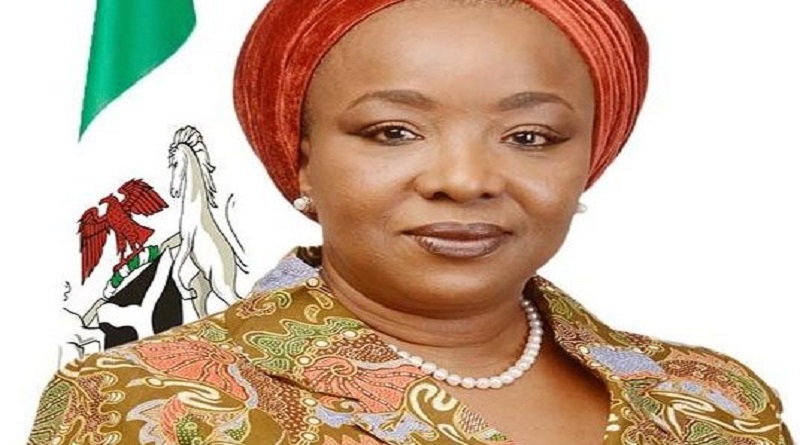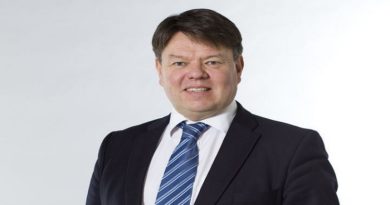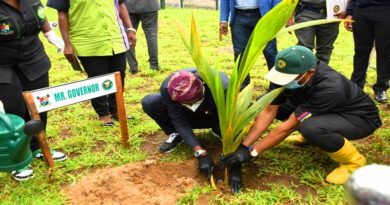FG wants more participation in climate action
In view of the enormous challenge that climate change poses to Nigeria, the Federal Government has said that it is her desire that more people be interested and involved in climate change action and participate in the efforts that the country is making while also taking advantage of all the opportunities it present especially to the youth.
Minister of State for the Environment, Chief Sharon Ikeazor, who stated this in her opening remarks during a webinar on “Public participation in Nationally Determined Contribution (NDC) Drafting and Implementation: Experiences from around the world” organized by the Centre for Climate Change and Development, Alex Ekwueme, Federal University, Ndufu-Alike Ikwo in collaboration with World Resources Institute, Washington, DC on Tuesday 19 October 2020, said climate change is a challenge to everyone and “it is the desire of the government that more people be interested and involved in climate change action and participate in the efforts that Nigeria is making in this regard but also to take advantage of all the opportunities it presents especially for our youth.”
She explained that the Federal Ministry of Environment has long recognized the importance of involving key stakeholders and the general public in not only the revision of the NDC but in the design and implementation of all aspects of climate change policy in the country.
Ikeazor went further “Personally, since I assumed Office, I have made it one of my priorities to meet with different stakeholders to get their perspectives and hear their ideas on how we as a country can best tackle the multidimensional challenges posed by climate change. I am absolutely convinced that public participation is a necessary requirement for accommodating diverse views in climate change decision making and process and, that is why I have been liaising tirelessly with all stakeholders including the youth, women groups, academia, private sector, conservationists, as well as Commissioners of Environment in different geopolitical zones of the Federation, trying to encourage their action not only at the Federal level but also at the Subnational level.”
The Minister of State who commended the organizers of the webinar particularly Prof. Chukwumerije Okereke and his team for the efforts they are making to promote public participation in the drafting and implementation of Nigeria’s NDC said Nigeria through the Ministry of Environment is open to collaboration and working together to address the challenges of climate change and build a sustainable low carbon prosperous economy for people.
In his presentation on ‘Building strong NDC through an “All of Society” approach, Dr Thomas Hale of University Oxford posited that the Paris Agreement creates a new catalytic model in which local governments, business, and civil society can play an important role as actors and that an “all of society’ approach can strengthen Nationally Determined Contributions (NDCs).
Hale stressed that the NDC is unique for every country added that an all of society approach to NDCs can make them more effective and better capture national interests while consultations should ask cities, business and civil society: what climate action are you already taking? What more could you do by working together and with the national government? What are the priorities for our country?
He listed the advantages of an “all of society” approach to include: capture a country’s full potential; broad ownership improves implementation and ensures continuity; experimentation promotes learning and transparency and legitimacy.
Dr. Malle Fofana, Country Representative, Global Green Growth Institute (GGGI) Republic of Korea said the main challenge in public participation in NDC drafting and implementation is leadership.
Stressing that government and personnel changes can put a pause on partnership planning activities; conflicting planning/budgeting cycles and NDC processes can create missed opportunities; lack of sectoral engagement or inter-sectoral coordination can hinder effective planning and implementation; engaging the private sector is difficult without clear investment or policy signals and securing participation from ministers and heads of state requires additional effort.
In her presentation on Children’s participation in climate processes, Jessica Cooke of Plan International said the transformational power of education for a more climate just world is not being translated to national climate policy. She explained that 68% of NDCs mention education yet the vast majority do so in a passive way either in a list of general activities (or a placeholder for article 12 of the Paris Agreement on ACE), with no clear target (only 26% of NDCs frame education are child centred), or as a sector that is affected by extreme weather events.. “By investing in girls’ education, countries are simultaneously investing in a just transition to a fairer world grounded in social, gender, intergenerational and ecological justice,” she stressed.
Yamide Dragnet, Director, Climate Negotiations, WRI and Senior Country Specialist NDC Partnership listed key functions on how to involve public participation to include workshops; working groups/national committee, debates, citizens assembly, competitions/prize and peer learning.
Bar. Huzi Mshela, Facilitator Nigeria NDC, highlighted some key steps that Nigeria has undertaken towards implementing the NDC.
The webinar moderated by Prof. Okereke also had presentation by youth climate activist, Olumide Idowu, on the contribution of youth to the NDC.




